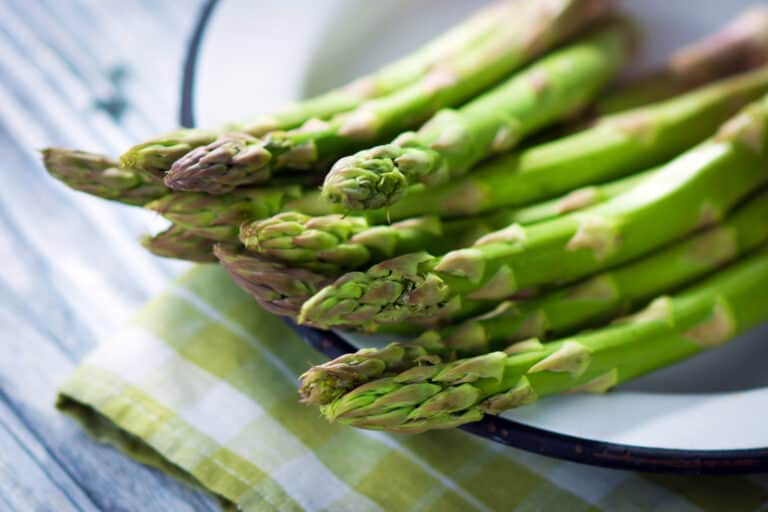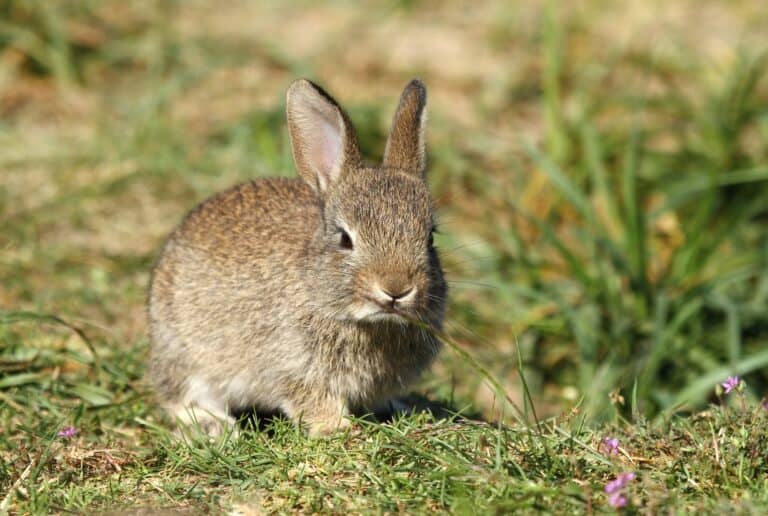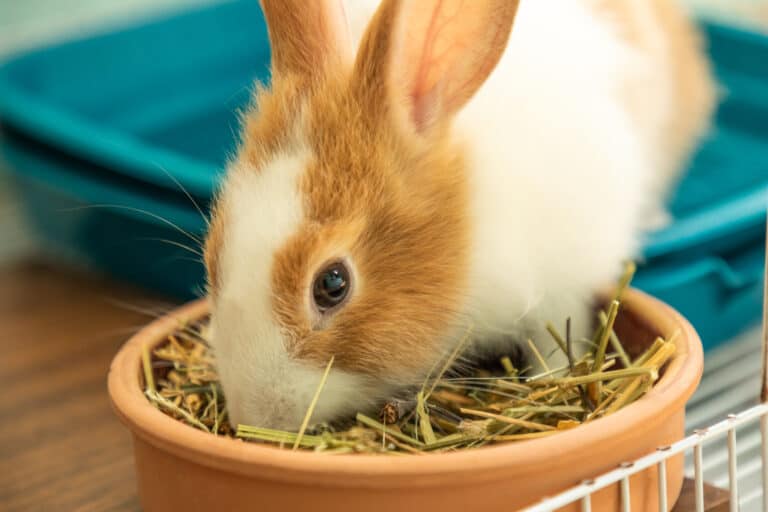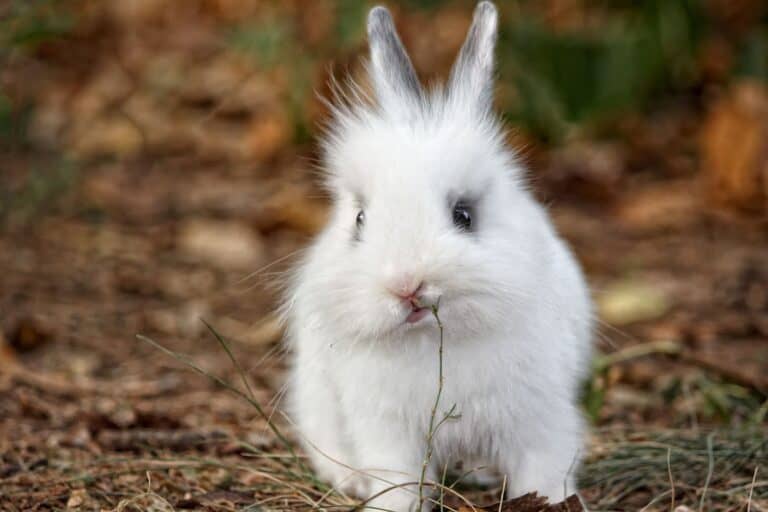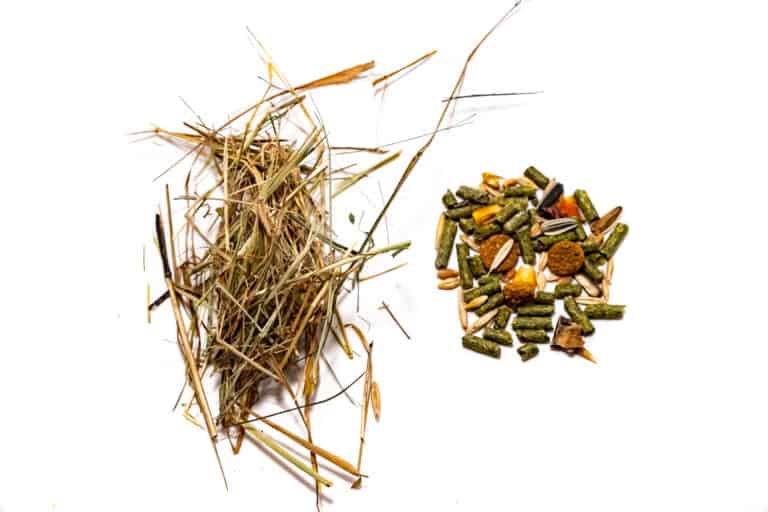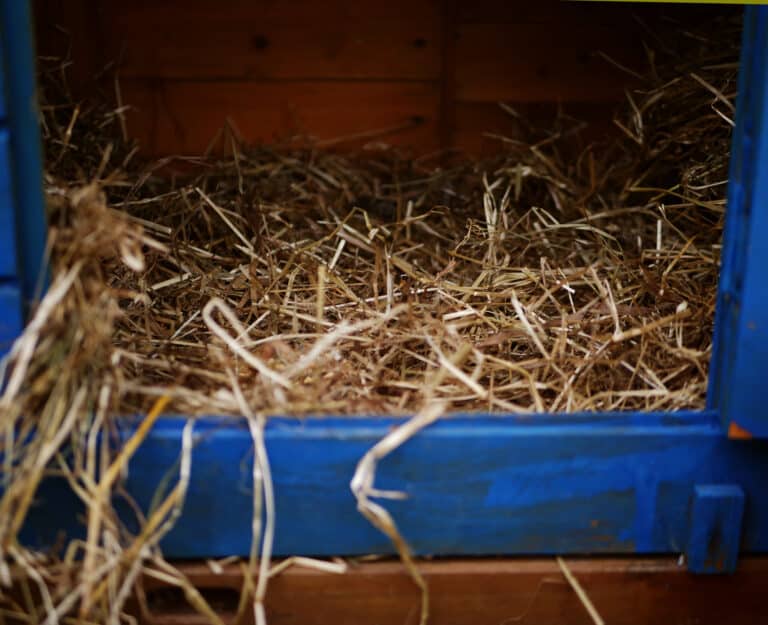Can Rabbits Eat Peppers? What You Need to Know

Peppers are some of the most wholesome and nutritious foods around so you might be wondering, can rabbits eat peppers? Just like humans, rabbits need variety in their meals to make feeding time more appealing. While buns can thrive purely on fresh hay, adding leafy greens and veggies to their daily menu is an excellent way to provide them with a nutritional boost.
The thing is, some vegetables can harm your bunny so you’ll need to know which ones are safe for him. Read on to learn more about the different types of peppers and ensure you’re providing the best nutrition for your beloved bunny.
What are Peppers?
Ah, peppers, those colorful and flavorful veggies that add a burst of taste to many dishes. From sweet to spicy, peppers come in various types, each with its unique characteristics. Let’s dig into the details of four different types:
1. Bell Peppers
These are the most common variety of peppers and are available in a rainbow of colors, such as red, yellow, green, and orange. Bell peppers are sweet and crunchy, making them a popular choice for salads, stir-fries, and even as a crunchy snack.
When it comes to rabbits, bell peppers should be fed in moderation as they are high in sugar and can cause digestive issues if consumed in large amounts.
2. Jalapeno Peppers
These small, green peppers pack a spicy punch. They are often used in Mexican and Tex-Mex cuisines to add heat to salsas, sauces, and other dishes.
Although they taste great, jalapeno peppers are not recommended for rabbits as their spiciness can cause discomfort and digestive upset in these small animals.
3. Cayenne Peppers
These fiery red peppers are known for their intense heat and are often used in hot sauces, spice blends, and even as a dietary supplement for their potential health benefits.
Cayenne peppers are too spicy for rabbits and should be avoided in their diet to prevent any digestive issues.
4. Sweet Peppers
Also known as banana peppers or Hungarian wax peppers, these mild and tangy variety are usually yellow or light green and are commonly used in pickles, salads, and sandwiches.
Sweet peppers are generally safe for rabbits to eat in small amounts.

Can Rabbits Eat Peppers?
The short answer is yes. However, not all types are safe for your furry pal. Bell peppers in all their colors are generally safe for rabbits to eat in moderation.
On the other hand, hot and spicy peppers, such as jalapenos, chili peppers, or cayenne peppers, should be avoided as they can be too spicy for rabbits and may cause digestive issues or discomfort.
Also, the way you prepare pepper and how you feed it can make a difference in whether it’s safe for your furry friend.
Among the various types, bell pepper is the safest for rabbits so let’s talk about this variety.
Why Bell Peppers Are Good for Rabbits
Bell pepper is a colorful and crunchy vegetable that’s a popular ingredient in many dishes. Also known as capsicum, it belongs to the nightshade family. But did you know that bell peppers are actually fruits, not vegetables?
This pepper type make excellent snacks for your bunny. For one, bell peppers are almost 90% water, so they can help keep your rabbit cool and hydrated, particularly during hot weather. They also contain fiber, which helps boost your pet’s digestive health. Moreover, the antioxidants in bell peppers can reduce the risks of certain cancers in rabbits.
On top of these health boosters, bell peppers are packed with the following nutrients.
- Vitamin A: Good for your bun’s eyes, teeth, and bones
- Vitamin C: Promotes healing
- Vitamin E: Helps keeps your bunny’s muscles strong and supple
- Vitamin B6: Boosts metabolism and food digestion
- Omega-3 and Omega-6 Fatty Acids: Keep the joints flexible and boost brain functions
- Manganese: For strong bones
- Potassium: For the proper functioning of the nervous system
Advantages
Rabbits require a balanced diet to keep them healthy and happy. Because bell peppers contain essential vitamins and minerals, adding them to your bunny’s menu can offer some benefits. Let’s look at what these crunchy and colorful snacks can add to your pet’s diet:
- Provides a Nutritional Boost
As we mentioned, bell peppers are chockfull of nutrients that can help keep your rabbit in tip-top shape. The vitamins and minerals they contain support and promote your pet’s immune system and body functions.
Also, because they’re great sources of soluble and insoluble fiber, bell peppers aid in maintaining healthy digestion and preventing gastrointestinal issues such as bloating and constipation.
- Makes Meals More Exciting and Appealing
Rabbits thrive on a diverse diet that includes a wide range of fresh vegetables. Bell peppers come in a rainbow of colors, from red and yellow to green and orange. This adds visual appeal to your fur baby’s meals making his food more attractive and appetizing.
- A Fun Interactive Experience
It’s no secret that rabbits love to chew. Wires, wall, carpets, even your clothes are fair game for them. It’s their way to keep their teeth in check and maintain good oral health.
The crunchy texture of bell peppers makes them irresistible to rabbits. And because bell peppers are naturally juicy, your bunny will love the burst of flavor that comes with each crunchy bite.

Disadvantages
While rabbits do enjoy munching on bell peppers, there are some drawbacks to feeding them to your fluffy fur pal:
- Digestive Upset
Bell peppers, particularly the ripe ones, have high sugar content. Rabbits have a sensitive digestive system that is not well-equipped to handle large amounts of sugar. Eating too many sugary foods can lead to issues like gas, bloating, diarrhea, and upset stomachs.
- High Water Content
Okay, we did say that because bell peppers are water-dense, they help hydrate your pet. However, drinking too much water can disrupt the delicate balance of a rabbit’s digestive system. This can trigger diarrhea, which can be fatal if left untreated.
- Choking Hazard
Rabbits are herbivores and are used to eating tough and fibrous plant material. However, bell peppers are firm and can be challenging for rabbits to chew properly. If your bun gets a large piece, he might swallow it whole, causing him to choke.
How to Give Bell Peppers to Your Rabbit
Bell peppers can be a tasty and nutritious treat for rabbits, but knowing how to prepare them correctly is essential. Otherwise, this healthy snack might end up doing more harm than good.
Here’s how to feed bell peppers in ways that will keep your rabbit healthy:
- Feed in Moderation
Fresh hay should comprise most of your rabbit’s meals. You can offer fruits and veggies, but these should constitute only about 15% of his diet. That’s approximately 1 tablespoon per 2 pounds of body weight.
- Start Slowly
Offer a small piece the first time you feed bell pepper to your bunny and watch for adverse effects or signs of illness. If all goes well, increase the portion until you reach the recommended serving size. This depends on your rabbit’s weight, so if you have a large bunny, you can offer more than if your fur baby is a mini breed.
- Cut into Small Pieces
To prevent choking, cut the bell pepper into small bits. This helps ensure that even if your pet swallows an entire piece, it won’t block his airways.
- Remove the Core and Seeds
Although bell peppers belong to the list of veggies and fruits safe for rabbits, the core and seed can be harmful. No, they’re not toxic. However, they’re a risk for choking and intestinal blockage. Moreover, they lack nutritional value, so there’s no point in feeding them to your pet.
As you can see, rabbits can eat peppers. However, you’ll need to exercise caution when you offer some to your bunny. Peppers, especially the spicy varieties, can potentially cause digestive discomfort or even harm him due to their high levels of capsaicin.
The great news is that in moderation and as part of a balanced diet, non-spicy peppers like bell peppers can be a healthy treat for rabbits. As with any new food, it’s crucial to introduce bell peppers gradually and monitor your rabbit for any signs of ill effects. Better yet, consult with a rabbit-savvy vet before offering the food to your bunny.
More about Rabbit Diet
- Is Orchard Hay Good for Rabbits?
- The Best Lettuce for Rabbits: What Type Can They Eat
- Complete Guide to the Best Hay For Rabbits: Reviews & More
- What Can You Feed Wild Rabbits: A Comprehensive Guide
- Can Rabbits Have Cabbage? What You Need to Know!
We hope you enjoyed this post! If you did, will you give it a share or two 🙂 Thank you! ~from Every Bunny Welcome


